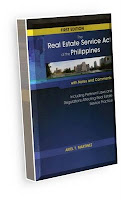DFA now affixes
‘Apostille’ instead of ‘red ribbon’ as proof of authentication
By Susan G. De LeonPublished on June 4,
2019
QUEZON CITY, June 4
(PIA)--The Department of Foreign Affairs (DFA) no longer issues Authentication
Certificates with "red ribbon", instead an Apostille is now being
affixed to documents for use abroad as a proof of authentication.
An Apostille is a certificate that authenticates
the origin of a public document. It is issued by a country that is party to the
Apostille Convention to be used in another country which is also a party to the
Convention.
On May 14, 2019 the Hague Convention Abolishing the
Requirement of Legalization for Foreign Public Documents (Apostille Convention)
entered into force for the Philippines.
With the Apostille Convention, foreign public
documents from Apostille-contracting countries need not be authenticated abroad
by Philippine Embassies and Consulates General in order to be recognized and
accepted in the Philippines.
In effect, Philippine public documents need not
undergo diplomatic or consular authentication in order to be used abroad in
fellow Apostille-contracting countries.
The Apostille Convention only applies if both the
country where the public document was issued and the country where the public
document is to be used are parties to the Convention
The Apostille
streamlines the whole authentication procedure of documents for use abroad
resulting to more convenience, less cost and processing time for the
applicants.
Before Apostille, a Philippine document to be used
abroad needs a certification by the relevant government agency or office,
authentication by the DFA, and legalization by the Embassy of the country of
destination.
With the Apostille, documents will no longer
require legalization by the Foreign Embassy if the country or territory of
destination is already a member of the Apostille Convention. Once Apostillized
by the DFA, the document can be validly used in any and all Apostille
Countries.
After authentication (Apostillization) by the DFA,
there is no more need for legalization by the Foreign Embassies or Consulates
except for countries that have not acceded to the Convention.
Aside from countries that have not yet acceded to
the Apostille Convention, the Philippine Apostille will not apply to Austria,
Finland, Germany and Greece. Documents from and to such countries will still
require legalization by their Embassy or Consulate in the Philippines.
The DFA Office of Consular Affairs will be the
competent authority responsible for the implementation of the Apostille
Convention. The Supreme Court plays an important role since the accession would
require the amendment of certain provisions of the Rules of Court pertaining to
the use of foreign public documents. (PIA InfoComm/DFA)







